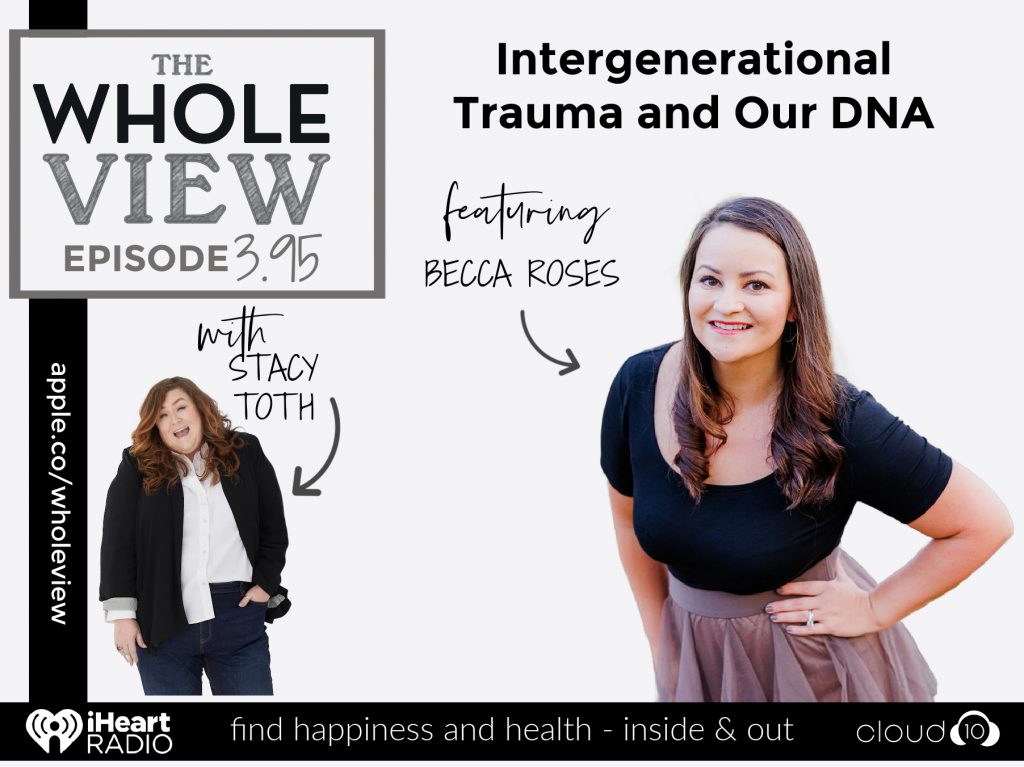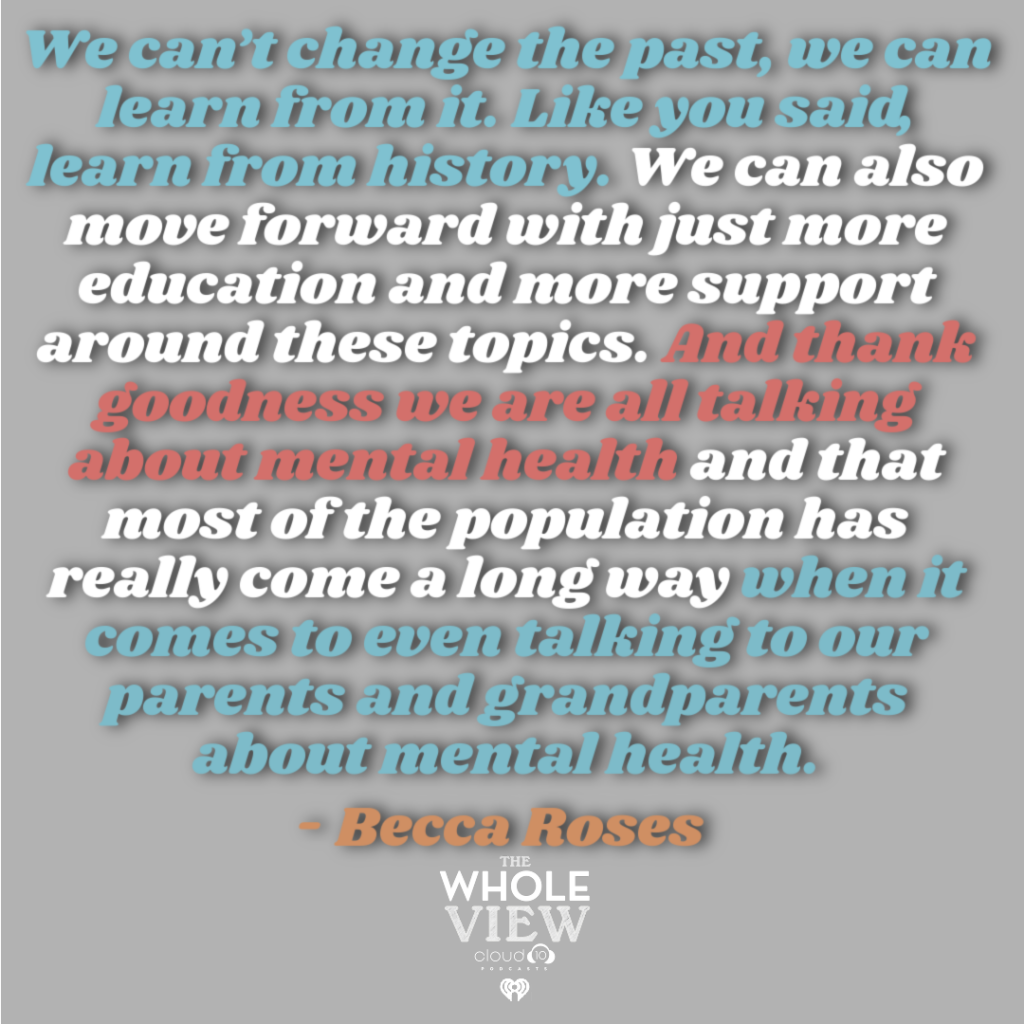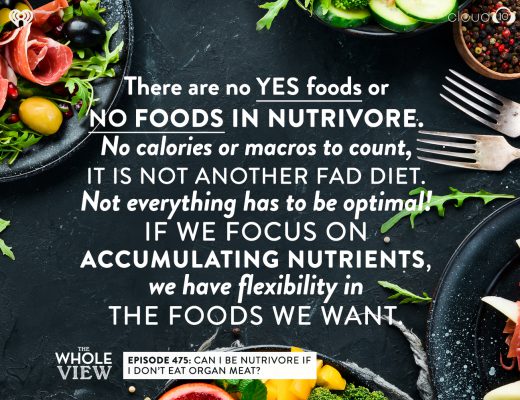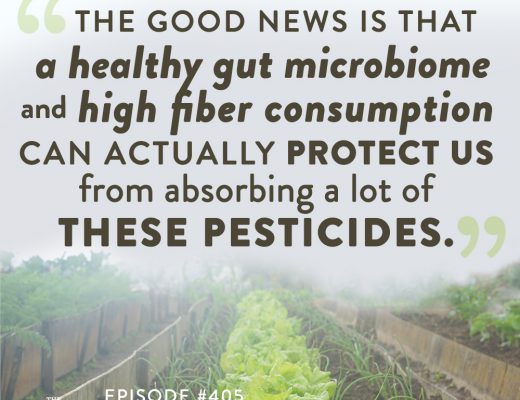Epigenetics coach Becca Roses is back to talk to Stacy about how states of fear and stress resilience can be inflicted in future generations through gene expression in our DNA and why setting out to break the cycles that came before us are more important than ever before.

Find Becca:
- Website
- Work with Becca through , $100 OFF with the code TWV, Genetic Blueprint Packages
- Check out details for the package giveway here (winner will be chosen and notified on 2/1/24)!
If you enjoy the show, please leave a review. Letting people know on iTunes or however you listen that it’s worth their time could change someone’s life!

Key Takeaways
Introductions
- As a Certified Epigenetics Human Performance Coach, Becca combines several modalities into her practice, such as meditation, human performance, and mindset hacks. In addition, she is certified in leadership and development. This further strengthens her ability to help her clients achieve their goals.
- Her life’s mission is to help you feel more confident and empowered by providing you with your blueprint for limitless wellness and leveling up your mindset.
- Mind Body Genes has a new certification program for coaches as well as their own platform with clinical DNA testing and a new skin health report.
- Stacy & Becca are also Beautycounter colleagues!
Intergenerational Trauma and our DNA
Types of trauma leading to intergenerational effects may include experiences of war, physical and sexual abuse, extreme poverty, neglect, and natural disasters. These events can induce a state of chronic stress and prolonged exposure to stress hormones, significantly impacting mental and physical health.
How?
- Trauma affects DNA through epigenetic changes. This doesn’t change the DNA sequence itself but modifies the way genes express themselves. Key mechanisms include:
- DNA Methylation: This involves the addition of a methyl group to the DNA, often resulting in the suppression of gene expression. Stress and trauma can lead to changes in methylation patterns, affecting genes related to stress response and mental health.
- Histone Modification: Histones, the proteins around which DNA is wound, can be chemically modified, influencing how tightly DNA is wound and thus its accessibility for gene expression. Trauma can induce changes in histone acetylation and other modifications, impacting gene expression.
- Non-coding RNA Changes: Trauma can alter the levels of non-coding RNAs, such as microRNAs, which play a role in regulating gene expression. These changes can affect stress response and behavior.
- Epigenetic alterations can be observed in various tissues, including the brain and blood cells. They are also linked to changes in stress response, emotional regulation, and risk for psychiatric disorders.
- The widespread implication of oxidative stress from toxic exposures could also account for the epigenetic role in a variety of disease such as neurodegenerative diseases, cancer, and diabetes. The histone modification and DNA methylation impact how genes are either turned on or off or up or down is really the big impact.
- Growing evidence indicates that individuals can pass these epigenetic changes from one generation to the next. While researchers are still studying the exact mechanisms, they believe that epigenetic marks can be transmitted through germ cells (sperm and eggs), causing altered stress responses and mental health risks in offspring.
Next Steps
- So what can we do to help? We can lessen our toxic load, seeking out support through talk therapy, somatics, coaching/counseling, proper nutrients/ targeted supplements, exercise, stress reduction.
- Take inventory of what is working and what isn’t in your life, since sometimes simple shifts in doing more of what brings us joy goes a long way!
- Work with an epigenetics coach to look at specific blueprint genetics like GAD1 (Glutamate to GABA conversion) + BDNF (stress insights). It’s always helpful to know your genes so you can really tune in and tune out what is no longer serving you.
Studies, References & Products
- The Whole View, Season 3, Ep 59: Cheat Codes to Your DNA with Epigenetics Coach Becca Roses
- The Whole View, Ep 499: Genetics, Epigenetics, & Social Determinants of Health
- NIH.gov: Stress Hormone Causes Epigenetic Changes
- Transgenerational Epigenetic Inheritance: From Phenomena to Molecular Mechanisms, Current Opinion in Neurobiology
- NIH Genome.gov: Child Abuse Leaves Epigenetic Marks
- Transgenerational transmission of trauma and resilience: a qualitative study with Brazilian offspring of Holocaust survivors, BMC Psychiatry
- Oxidative Stress and DNA, Journal of Social and Biological Structures
- NBC News: Motherhood deferred: U.S. median age for giving birth hits 30
- The Body Keeps the Score: Brain, Mind, and Body in the Healing of Trauma by Bessel Van Der Kolk
Sponsors
- ButcherBox.com/WHOLEVIEW | Use code WHOLEVIEW to choose your free offer + $20 Off
- LumeDeodorant.com | Use code WHOLEVIEW for $5 off your first Starter Pack
Want more info on our Real Life? Healthy recipes, parenting tips, and general lifestyle stuff goes out in our Real Everything newsletter, join here.
So never want to miss a post, sale, or deal? Join my Healthy Inside & Out e-mail list for more info on non-toxic living and safer skincare!




